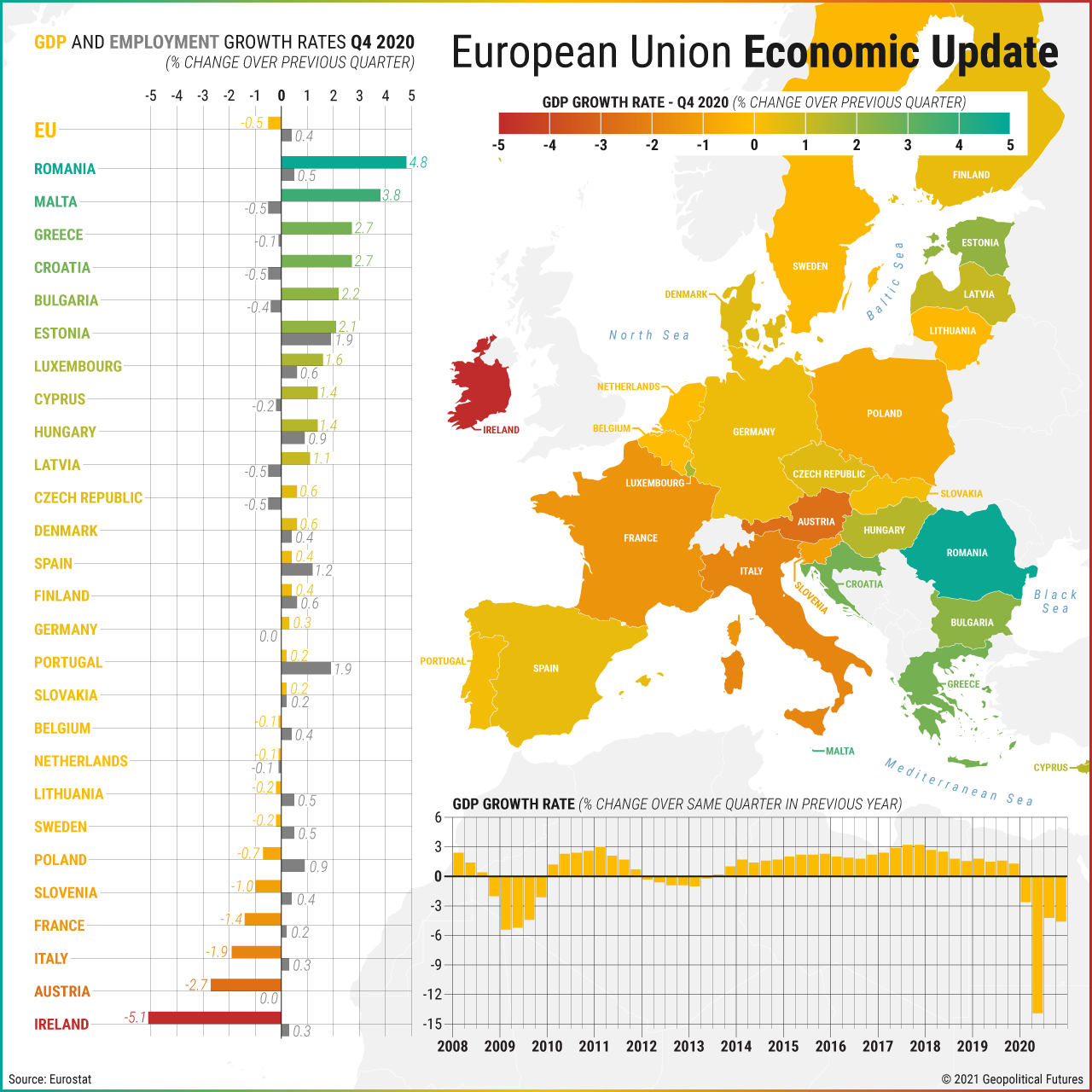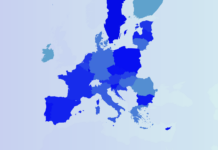In its response to the COVID-19 pandemic, the European Union has had some ups and lots of downs – particularly when it comes to vaccine acquisition and distribution. Use of one of the leading vaccines, developed by Oxford University and AstraZeneca, was temporarily suspended and/or restricted over potential health risks, leading some European countries to seek alternatives in Russia or China. Various degrees of social distancing are still in place. Technical approval of the bloc’s 750 billion-euro ($890 billion) coronavirus recovery fund – one of the EU’s rare triumphs over the past year – could be delayed by legal challenges in Germany and political challenges elsewhere, like Poland.
On a national level, over the past year and more, member states implemented sizable relief measures to delay bankruptcies and protect employment and wages. Data from 2020 indicate the measures have worked as intended, but they cannot be sustained indefinitely. Many are slated to end within months, and it isn’t assured that the EU’s economic recovery package or the vaccine rollout will be in a good place when they do.








